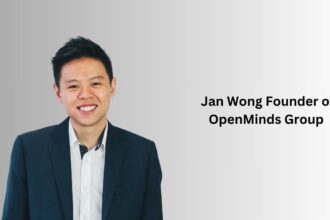The higher learning institutions provide education at a higher level of depth which surely embraces the country’s needs. Therefore, to fulfil this vision, the mission involves developing programs that are planned to always be relevant to the future development and growth of the country.
Institutions of Higher Learning provide education at a higher level of depth which surely embraces the needs of the country. Therefore, to fulfil this vision, the mission involves developing programs that are planned to always be relevant to the future development and growth of the country. The development and growth depend on the workforce and this component is also derived from the production of graduates by the institutions of higher learning that embarked on study programs which fit in with the national workforce requirements as strategized. The requirements may differ with time, concurrent with the present and future socio-economic scenarios that are usually embedded in the national strategic planning for the country’s growth, so as it is much in line with any advancement, such as technology and the applications of artificial intelligent by the workforce; a method to ensure that productiveness is always a priority, smartly and with the desired speed for progress.
Why Continuous Relevance of education programs is a necessity?
The institution of higher learning such as the Universiti Malaysia Kelantan (UMK) has been making continuous progress since its early establishment to ensure that the graduates produced from the study programs are always relevant to the current and future national workforce agenda and are not only knowledgeable but can also apply their knowledge from the know-how exposures and experiences at the University. Being uniquely different, UMK has been allocating extra benefits to all study programs. The embedment of entrepreneurship component in the UMK study programs has made the development and production of a unique set of graduates for the country who are sound in both the study undertaken coupled with entrepreneurship savvy experiences and skills, which is not short of enculturation of entrepreneurship attributes that makes a leader in their carrier path. Their carrier path through the working environment they are later involved in would furnish them with mental strength that can provide an application of approaches from the compulsory entrepreneurship exposure at the University, not only as job seekers but possibly also as job creators for the country’s advancement. This entrepreneurial exposure would benefit the graduates and the future country’s workforce who are expected to be much more easily adaptable and adjustable in any working environment.
The obsoleteness of any program is surely not a choice in higher education. The stakeholders in the job market would surely be attracted to graduates who are able in many ways with up-to-date knowledge and become the enablers of the prosperity of the employers in the work market, and hence helps in the socio-economic growth of the country. However, to make this happen, the University seriously ensure study programs are always current and the latest, by considering that the workforce requirement may change in alignment with the high technology development with time, such as to address and keep pace with the present and upcoming fourth industrial revolution that much encompasses high technology in many aspects of working and daily life.
Doing so will ensure the marketability of the graduates and their employability are achieved to the best possible. To make this a reality, the curriculum consisting of various subjects in any one semester of study till completion, in all study programs are reviewed on a regular basis. This is usually done after a period of graduation of students from a cohort, which differs between academic programs in different Faculties. For instance, it takes five years for the Doctor of Veterinary Medicine (DVM) program to complete. When the review of the curriculum is accomplished as planned, the courses taught will be relevant, which embraces the need to include or modify the course content or even the addition of new courses to the academic curriculum. For the DVM program, for instance, the latest knowledge of veterinary forensic pathology is now very much essential to address the current trends and development that demand such knowledge when the country’s enforcement of animal welfare issues and using scientific facts to punish the unlawful on animals are enhanced.
How would the faculty’s management know what academic components of the curriculum are obsolete or irrelevant or now needed to be part of the curriculum? The response of the relevant stakeholders in the job market associated with the program is very pertinent. The stakeholders, the employers,
are the end user of the graduates, the employees. Therefore, the needs, interests and desires of the employers should be addressed, and hence would maintain and enhance graduate marketability and employability throughout the years to come. More importantly, the needs that align with the national future direction for growth and advancement in many ways.
The following are possible approaches to ensure the marketability of the graduates with the latest knowledge that is essential and relevant in the job market.
Job satisfaction survey of the alumni, the job seekers
It can be usual that the graduates be announced as alumni in the graduation ceremony when the ceremony is about to come to an end. This moment is one of the most joyous during the graduation ceremony. The graduates are leaving the University to be part of and serve the public which becomes a component of the workforce when engaged by any employers. The detailed records of the graduates, pre- and post-graduation would help in the communication of their where about and working status. This keep track attempts by the University is a usual practice, and when there is no break in contact with the graduates, a complete survey on whether they had been engaged in jobs or there have been a regular change of jobs and the reasons for that can be ascertained. Such a survey can be conducted during an organised alumni day at the University, in relevant gatherings like conferences or by digital interaction.
Being in the workforce, in any company or organisation, is a challenging moment. Application of what had been learned in the University is much awaited with pleasure or anxiety that can be of favourable or unfavourable experiences and outcomes. In the working environment, satisfaction or dissatisfaction may occur. Though that job satisfaction may be governed by many factors, it can be related to whether what had been learned is much relevant or applicable to the jobs of the graduates. Worst if, nothing learned is applicable or non-related or outdated. Graduates can possibly be exposed to the diversified current advancement in comparison to the set of knowledge and skills gained initially at the place of education providers.
For example, if the poultry management technology practised nowadays, is more advanced in comparison to only the conventional less up-to-date method of this livestock management taught to students during their studies, may put the graduates in difficult situations. However, since development can appear faster than anyone can envision, it should be habitual that graduates and academicians, be frequently and consistently keep abreast with the dynamism of knowledge from different sources. Thus, the term live long learning is very much applicable, such as by engaging in continuing education programs or workshops on current trends organised by any Universities or related knowledge providers. Ignorance of the importance of updating one’s knowledge, senior graduates engaged with the program’s study content during their time being students, can be less relevant and applicable, in comparison to the recent junior graduates exposed to the current advancement and development.
It can be usual that some graduates may be working in jobs, not at all related to what is being learned, for the sake of getting a job to sustain life, which needs total adjustment and adaptation. In cases where the job is relevant to the study programs and the organisations of work, the job satisfaction surveys with regards to the application of the knowledge learned can be very useful in keeping the curriculum of programs the latest and related to the workforce requirement at any period.
However, the involvement in jobs unrelated to the knowledge obtained can be a measure of versatility, durability, and adaptability. This reflects the mental hardiness and robustness of the graduates in any possibly challenging or less friendly job environment, much likely from the inculcation of entrepreneurial attributes which also embedded leadership qualities, risk-taking courage and other approaches especially through co-curricular activities to produce holistic and very able, easily adaptable graduates, during their tertiary study period in the institute of higher learning.
Graduates Performance satisfaction survey by stakeholders, the job providers.
The job providers should be included as important responders of any accomplishment pertaining to the delivery and content of the education, and how the delivered essentials are practised by the graduates. In such a survey, the satisfaction of the employers can be identified, and these are based on the performances of the graduates. However, the employers’ observation of performances should take into consideration the period of adaptation of the engaged graduates, especially as a starter in a new environment. A new environment can affect many ways of performance. The basic requirement needs to be established by the adapting employees in conjunction with the expectation of the employers on job performance satisfaction of their engaged graduates. There should be a reasonable grace period until the habits of good performances of employees can be much satisfactory, identified and assessed. These also depend on the available working facilities that may or may not be conducive and that easily promote and encourage good performance to habitual success providers for the employers. Therefore, the survey should entice the acquisition of adequate information that be critically analysed and concluded by market survey experts who practised survey methods that are closely related or interrelated and not less friendly or burdensome to complete, by any responders. Hence, a check and balance from information obtained from employees’ job satisfaction and employers’ performance satisfaction of graduates can be inclusively incorporated and concluded from the surveys.
Interactive session with stakeholders and other relevant organisations
The comments and opinions of the stakeholders of the graduates in the different works sectors need to be heard. One way this can be implemented is through interactions in meetings with stakeholders, organised by the faculty. Therefore, through this platform, graduates produced whether relevant or not to the job providers’ interest is ascertained through different voices of the same agenda. Though those surveys had been conducted, for example, through digital technology with more coverage of potential respondents, meetings can be more elaborate in justification pertaining to concerns and emotions on the produced graduates from currently established education programs and their impact on the job market.
The possible stakeholders should be identified and invited. In such meetings, the coverage of the participants of the meetings can be made more impactful by the invitation of leaders or chairpersons who represent the organisations of many members that can provide feedback on the performances and quality of the graduates produced from the education program. This is a relevant meeting to acquire information for a sound review of education programs. The feedback obtained can assist the revision of the curriculum from justifiable real-time responses and be presented for further feedback.
Similarly meeting with alumni may also be held for the curriculum review. The alumni can be those from the currently and previously graduated different cohorts in different categories of importance and most engaged work sectors.
From surveys and interactions to action and sustenance of relevance
The surveys and interactions data can be utilised to review the curriculum of the education programs, be it omission, addition, modification, or transformation. Certain programs, such as that produced by Veterinary professionals, are also monitored by The Malaysian Veterinary Council (MVC), a speciality body with experience and dedicated members who ensure attainment and assurance of the desired standards of quality of Veterinary professionals to be produced from the teaching learning approaches in the programs and the essential facilities available by the education providers, the Institutions of higher learning.
During the interaction of any related parties, perhaps strengths as well as limitations of the graduates at present, or possibly way back in early secondary or primary educations of any graduates, can be captured and can make way for proposed enhancement or corrective actions, such as even the expected standard of command of languages of the graduates for efficient communication.
During the meetings when held, the data from the surveys of the graduates and employers can also be presented with supporting evidence by categorising the data that encompasses different job providers and seekers in different sectors, be it private or government or any agencies, for instance, if on veterinary practices, such as small, large animal or exotic animal practitioners or that may involve pharmaceuticals or policy, legal, ethical, or procedural matters. The gathering will further identify the gaps in knowledge in the curriculum of the academic programs through analyses and feedback provided.
The new curriculum proposed, will ensure sustenance and relevance of the education programs which do not dismiss the importance of the future quality workforce among graduates to be produced.
Attitudes as a Trigger of Job Success and Performance Satisfaction
The education programs embrace academic matters. However, at the end of the day, the attitudes of the graduates can be of paramount importance that trigger and entices success and satisfaction of any graduates and captures the heart of employers in any job market. Graduates who are both sound in their academic achievements and applications and attractive in their personality can be much demanded and sought by any job seekers in the market.
A good attitude is certainly the determinant of any successful employment and job career. The attitude can be observed during job probation of a certain duration by the employers. Therefore, during that trial period, the graduates can be the subject of constant observation and continuous evaluation before certification of the post held. The education providers can play their roles to produce graduates with the expected and admired personality, expected by job seekers, probably by organising pre-graduation programs to prepare them before the entrance into the job market. However, when it comes to developing a good attitude, is a continuous process, even in the lecture halls as take away messages during the academic sessions and especially through co-curricular activities such as leadership training. The production of both charismatic and holistic graduates should be the desired aspiration.
University Malaysia Kelantan embraces such achievements through scrutiny of academic curricular programs in Faculties, complemented by personality development of students, by the University’s residential college and student affairs management. The co-curricular activities are a way forward for the production of holistic graduates to ensure their attractive demand in the job market. It can be a sort of branding of university graduates and for UMK is the production of holistic graduates, also with sound entrepreneurial attributes to prepare for different job professions. The Malaysian philosophy of education is continually adopted. Its relevance and applications remained significant to the country.
Professional Opinions from National and International External Examiners
For education programs where final year students are assessed by external examiners from recognised and reputable expertise from the faculties of other regions and organisations relevant to the programs, should incorporate in the
visiting plan, meeting held with the faculty management and members who should be good listeners of their opinions, on many aspects of the programs that produce the future graduates. These include the organisation structures, curriculum, student intake criteria, facilities, academicians and their expertise, and the support and delivery systems. The visiting plan which comprises these concerns is worthy of the visit that has a financial impact on the organisers and the University’s budgeting strategies.
The professional opinions of the examiners on the performances of the students during the comprehensive examination may bear a relationship with the standard and quality of the academic programs, the producer of the graduates and the organisation’s best practices that can be considered for continuous improvement. The written report of the external examiners, which can be favourable or less favourable, also embraces these contributing factors, and as a good reference that signifies the concern for further strategies to be taken but not just remain as a report without actions and a good return of investment on the examiners’ visit.
International Accreditation of Education Programs
The education programs in local universities, such as the Faculty of Veterinary Medicine, can go beyond that through the national accreditation bodies. This is for the purpose of quality assurance on many aspects of the programs. The national accreditation bodies of any one country may have also incorporated international accreditation standards. However, the scope of international accreditation can go on a broader coverage of that practised, to raise the standard of the local education programs worldwide. Recently, Universiti Malaysia Kelantan has been internationally accredited as an Entrepreneurial University by the Accreditation Council for Entrepreneurial Engaged Universities (ACEEU). Being also the first public university in Malaysia to achieve this international recognition, raised the standard and quality of the entrepreneurial education programs of UMK.
This advancement can attract international students to the local Universities due to the versatility of the academic programs based on the confidence that the embedded curricula are of wide applications, that includes the international job market from the production of graduates in the country. This
internationalisation impact is the enhancement of the visibility of the education programs of the faculties in the country, to be recognised worldwide, both for undergraduate and postgraduate degrees. The journey can be treacherous, but worldwide recognition for marketability for intake of international students and the production of graduates of worldwide comparable standards in the job market may account for an attempt or strategy worth doing. The international ranking position of universities can also account for more opportunities to engage students’ enrolment in programs offered and the marketability of the graduates upon completion of study based on the world ranking status.
Harnessing and Embedment of Quality Work Culture
Any University can go far with any education programs that keep abreast with national and international development including that which involves the production of graduates through the best practices, relevance, up-to-date and versatile academic programs derived from market surveys and interactions with stakeholders.
Complementary to this, the high team spirit of the management, academic and support staff, and their passion to contribute to the progress of producing marketable graduates are very significant for the continuous supply of employable and impactful work force, for the advancement of the country.
Since the production of first-class holistic graduates, the outputs, is the aim that addresses the core business on academic matters in universities, the succession plan to recruit and employ staff, the academicians especially, with relevant expertise of any academic programs is quite pertinent. A break in the supply, recruitment and grooming of the relevant and talented staff of any division and expertise, the input, can affect the quality of the graduates produced, even with the best, relevant, and internationalised academic programs.
Progress to ensure academic programs’ relevance and quality can then be monitored, which includes the curriculum review, up-to-date staffs succession plan and ancillary requirements standards and status of Faculties in related platforms. Harnessing, maintaining, and enhancing quality work culture and the alertness toward the continuing significance of academic programs, is a pertinent lifestyle of the related governance, support, and delivery systems to sustain and maintain the production of marketable and employable graduates for the country.

















